Written by Lily Haines and Gimel Morley
We are thrilled to announce that The Bahamas Coral Gene Bank at Atlantis, Paradise Island has received two 40-foot containers packed with essential lab equipment to bolster coral preservation efforts in the face of the Stony Coral Tissue Loss Disease pandemic. Spearheaded by the Perry Institute for Marine Science (PIMS), this crucial step in establishing the gene bank is a collaborative initiative involving The Government of The Bahamas, Atlantis Paradise Island Resort, Atlantis Blue Project Foundation, and the University of The Bahamas
Coral reefs, often called the “rainforests of the sea,” are vital to ocean health. They provide habitat and shelter for countless marine organisms, support fishing industries, and protect coastlines from erosion. However, these ecosystems face severe threats from climate change, pollution, overfishing, and diseases like Stony Coral Tissue Loss Disease (SCTLD).
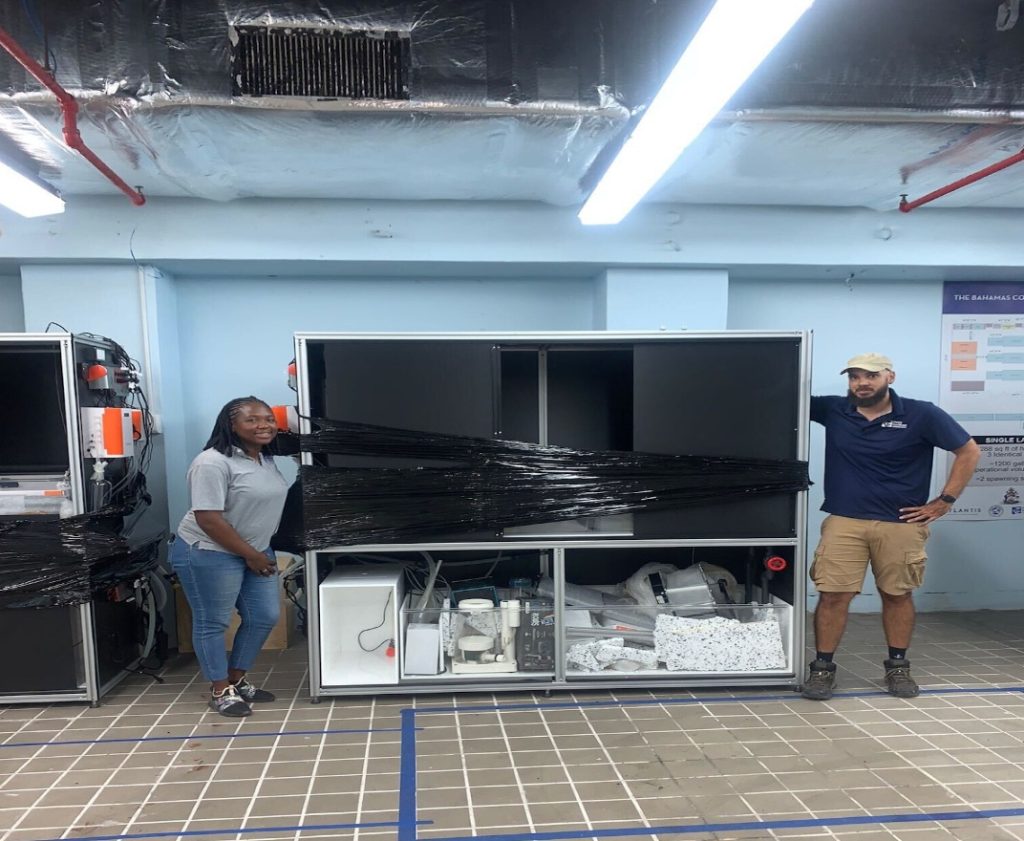
The Urgent Threat of SCTLD
SCTLD is an epidemic that is rapidly killing a wide range of stony coral species throughout the waters of The Bahamas. Affecting reef areas around New Providence, Grand Bahama, Great and Little Exumas, San Salvador, and more, this disease has led to the destruction of hundreds of million of corals. It is considered the deadliest threat to Bahamian coral reefs to date.
In response, the Bahamian Government is taking steps to mitigate the effects of SCTLD. They have engaged with national and international experts, including academics, scientists, non-governmental organizations, and private sector partners like Atlantis, Paradise Island. Atlantis and its non-profit, the Atlantis Blue Project Foundation, have played a crucial role in marine conservation, establishing Marine Protected Areas, and leading coral restoration efforts in The Bahamas.
At PIMS, we have dedicated over 50 years to understanding and protecting Bahamian marine ecosystems. Our longstanding partnership spanning more than 15-years with Atlantis and the Atlantis Blue Project Foundation has been instrumental in advancing coral reef conservation. We have developed The Bahamas’ first coral reef report card, established the Atlantic and Gulf Rapid Reef Assessment (AGRRA) as the standard method for coral reef evaluation, and gathered essential data to identify locations for Marine Protected Areas.
The University of The Bahamas is also expanding its marine science degree programs and making significant contributions to marine conservation and research. The university is enhancing in-country capacity in scientific fields and developing state-of-the-art laboratory facilities for chemical, environmental, and genetic analyses.
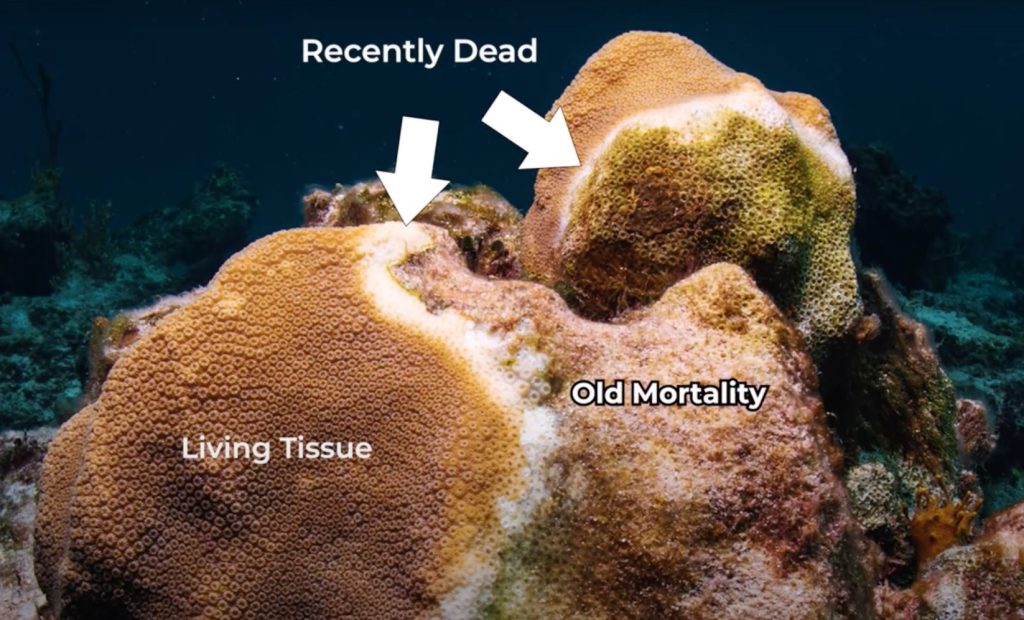
Establishing the Coral Gene Bank
The Bahamas Coral Gene Bank will store, genetically analyze, reproduce, and propagate various species of coral susceptible to but uninfected by SCTLD. Our ultimate goal is to replant healthy corals and their progeny in Bahamian waters once SCTLD is no longer a threat.
A significant feature of this new facility is its biosecurity. The area we’re building is meticulously designed to prevent contamination and ensure the highest standards of safety for the coral specimens. This biosecure environment is essential for maintaining the integrity of the genetic material and supporting cutting-edge research.
Educational and Public Engagement
The Perry Institute is committed to fostering education and collaboration. In partnership with the University of The Bahamas, PIMS and Atlantis will provide students with access to this high-tech facility, offering invaluable hands-on learning opportunities. Visitors to Atlantis Resort can also look forward to learning more about coral conservation efforts through interactive exhibits and educational programs. These initiatives aim to raise awareness about the importance of coral reefs and inspire a new generation of ocean stewards.
As we join forces with Atlantis Resort, Atlantis Blue Project Foundation, UB and the Government, we are not only preserving the genetic diversity of corals in The Bahamas but also contributing significantly to the global fight to protect and sustain our planet’s marine life. This coral gene bank highlights the urgent need for collective action and innovation to ensure that future generations can experience the vibrant and diverse life of our ocean’s coral reefs.
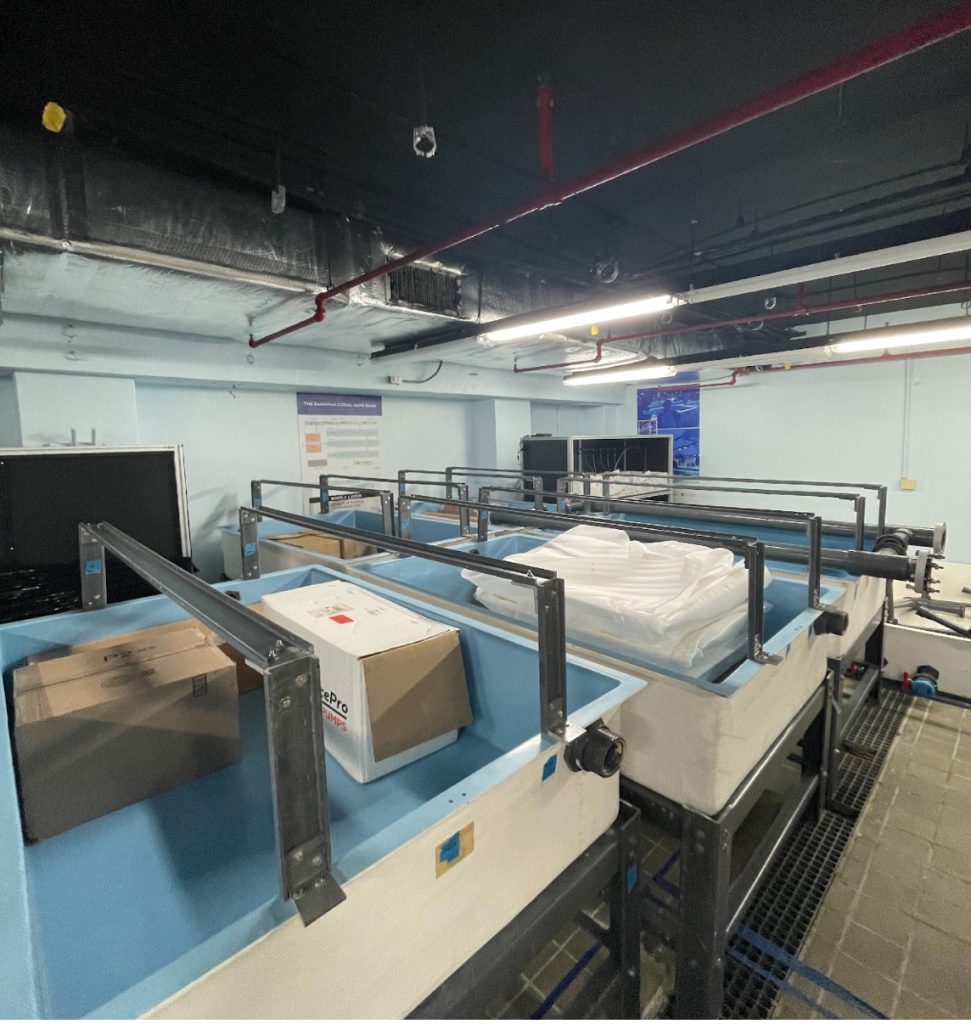
Dive deeper.
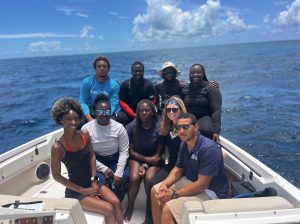
Become a PADI Dive Instructor in The Bahamas | Conservation-Focused IDC
Become a PADI Dive Instructor in The Bahamas | Conservation-Focused IDC | Perry Institute for Marine Science Education & Training Ready to take your diving skills to the next level
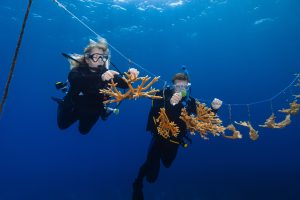
Stream2Sea Coral Care: The World’s First Reef-Positive Sunscreen
Stream2Sea Coral Care: The World’s First Reef-Positive Sunscreen | Perry Institute for Marine Science Conservation Partners Stream2Sea Coral Care: The World’s First Reef-Positive Sunscreen Discover why PIMS has partnered with

Build a Coral Reef for the Holidays | PIMS x Partanna
PIMS is partnering with Partanna to build a 100m² carbon-negative reef. Rick Fox is matching donations up to $25k. Help us build a sanctuary for the future.
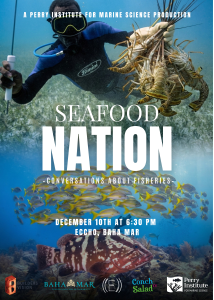
“Seafood Nation” Documentary Premiere Explores the Heart of Bahamian Culture and the Future of Fisheries
NASSAU, The Bahamas | December 5, 2025 – From the bustling stalls of Potter’s Cay to family kitchen tables across the archipelago, seafood is far more than just sustenance in
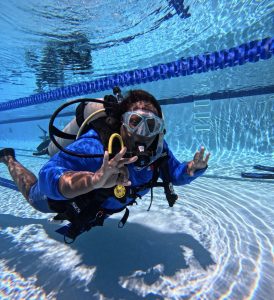
PIMS and Disney Conservation Fund Partner to Train 19 Government Divers
PIMS dive training in Nassau strengthened national coral restoration capacity across government agencies. Bahamas Dive Training Builds National Coral Restoration Capacity Last fall, between the months of September and October,
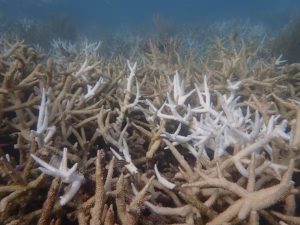
Florida’s Coral Reef Crossed a Line: What Functional Extinction Really Means for Elkhorn and Staghorn Corals
Reefs didn’t just bleach. They functionally vanished in one summer. A new Science study co-authored by researchers from the Perry Institute for Marine Science (PIMS) has found that Florida’s two



